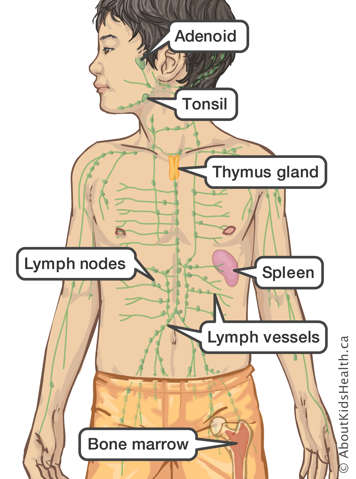
What is primary immune deficiency?
Primary immune deficiency (PID) is the name given to chronic illnesses caused by hereditary or genetic defects in the immune system. There are over 150 forms of PID. Some are mild, some are severe.
The immune system protects our bodies from germs such as bacteria and viruses that cause infections. People with PID do not have properly working immune systems. Often, they do not make enough antibodies, which fight off these germs. The result is infections that last a long time, frequently come back, and are hard to treat.
Signs and symptoms of PID
Here is a list of 10 warning signs of PID:
- Eight or more new ear infections within one year.
- Two or more serious sinus infections within one year.
- Two or more months on antibiotics with little effect.
- Two or more lung infections within one year.
- Failure of a baby to gain weight or grow normally.
- Deep skin or organ abscesses that keep coming back.
- Thrush in mouth or elsewhere on skin, after age one, that won't get better.
- Need for intravenous (IV) antibiotics to clear infections.
- Two or more deep-seated infections.
- A family history of PID.?
If your child has two or more of these signs, you should see your doctor about PID.
Diagnosing PID
Most PIDs are hereditary, meaning they are passed on from parent to child. The doctor will ask about your family medical history. To confirm PID, blood samples are also taken and examined.
It is best to find out as soon as possible if a child has PID. Early detection can mean early treatment and a better quality of life as the child grows up.
Treating PID
Children with PID receive antibiotics to treat infections. Antibiotics are sometimes given on a long-term basis to help prevent infections.
Intravenous immune globulin (IVIG) therapy is the standard treatment for people who have forms of PID where the body cannot produce antibodies. IVIG is a blood product made of antibodies. It strengthens a child's immune system by providing the antibodies the immune system cannot produce on its own. IVIG is also called Gamma.
In severe cases of PID, patients may need a bone marrow transplant.
IVIG is given to your child through an IV
The word intravenous (IV) means IVIG is given directly into your child's vein. A nurse will put a hollow needle into a vein in your child's hand or arm. The IVIG will slowly flow into your child's vein through a tube attached to the needle. This is called an infusion.
IVIG infusions usually take a few hours, and are given every three to four weeks to keep antibody levels high in the blood.
There are certain vaccines your child should not have
In children with PID, some immunizations (vaccinations or shots) may cause serious illness or even death. A child with PID should NOT receive the following live virus vaccines:
- oral poliovirus vaccine
- measles-mumps-rubella (MMR) vaccine
- Bacille-Calmette-Guérin (BCG) vaccine against tuberculosis (TB)
- chickenpox (varicella) vaccine
- rotavirus vaccine
- yellow fever vaccine
Talk to your child's doctor at the immunology clinic before your child has any immunizations.
Caring for child with PID at home
Even with regular medical treatment, children with PID can still become sick. Parents should know how to prevent and avoid exposure to illness.
Good nutrition, hygiene, and rest are important. Physical activity is also part of a healthy lifestyle.
If illnesses occur in your child's school or neighbourhood, you should be notified and take action to protect your child. This is especially important for outbreaks of:
Talk to your nurse and officials at your child's school or day care.
Coping with PID
Living with chronic illness can be stressful for your child, your family, and you. It may affect your whole family's daily life.
Children with PID may have stress from being sick and missing school for check-ups and treatments. But it is important that your child has regular check-ups and treatment to avoid serious illness.
If you or other members of your family need help coping, talk to your nurse.
Clinic appointments
Your child will have to have several appointments the immunology clinic. You may be asked to bring your child's health information and test results. You may also want to bring snacks, diapers and activities for your child.
Write down the clinic location here:
Write down the clinic phone number here:
Write down the dates and times of your appointments here:
Write down any questions you want to ask the doctors here:
